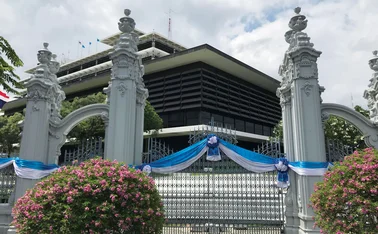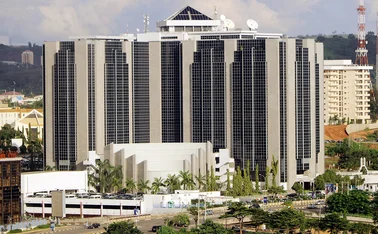
Central Bank of Hungary moves to shut IMF's Budapest office

The governor of the Central Bank of Hungary (CBH), György Matolcsy, has written to the managing director of the International Monetary Fund (IMF), Christine Lagarde, saying he is "initiating the closing down of the fund's resident representative office" in Budapest.
Matolcsy, the former minister for the economy who was made central bank governor in March this year, said the country's stand-by arrangement (SBA) is "almost complete", leading to the conclusion that the representative office was surplus to requirements. Further, he said, "we are considering a possible early repayment of Hungary's outstanding obligations".
Hungary has had a prickly relationship with the IMF over recent years. The IMF agreed the €12.5 billion SBA in October 2008 to help stabilise the country's financial sector, but the Hungarian government led by Viktor Orbán, which came to power in 2010, has refused to comply with the conditions attached to subsequent proposals of assistance.
In the last weeks of previous governor András Simor's tenure at the central bank, legal proceedings were initiated against an unnamed CBH employee who was suspected of having passed information on the country's commercial banking sector to the IMF, without having first sought the permission of the commercial banks in question.
The IMF has this year twice expressed concern at the direction of monetary policy in Hungary. In its Article IV consultation in January, the fund warned further cuts in the policy interest rate should be considered "cautiously", but governor Simor – who wanted to hold rates – was again outvoted by the Orban-appointed external members of the monetary policy committee.
In April, the fund called for a "pause" in monetary easing, and expressed concerns over the independence of the central bank from the Hungarian government after Matolcsy was moved from the finance ministry to the governorship of the central bank. The central bank proceeded to cut its benchmark interest rate again.
A back-handed compliment
In his letter to Lagarde, Matolcsy said Hungary appreciated "the valuable support of the Fund in times when Hungary was hit by the crisis and the financing of its public debt above 80% of GDP became questionable", but said that "as a result of bold fiscal consolidation measures, implemented in parallel to a structural reform programme in 2011–2012, the budget deficit was contained and, following a technical surplus in 2011, stabilized well below 3% of GDP in 2012".
Addressing the IMF managing director personally, Matolcsy added that he wanted to "congratulate you for your efforts in making the most of the Fund's mandate stipulated in Article 1 (ii) to promote economic growth (i.e. high levels of employment and real income). Let me assure you that at the Magyar Nemzeti Bank, the central bank of Hungary we put equal emphasis on this goal, in line with our legal mandate."
This last is likely to be seen as a backhanded compliment, referring to Hungary's refusal to fall in line with IMF recommendations on fiscal consolidation, and the pro-growth stance of the central bank, which has seen rates continue on a downward trajectory, and the introduction of an ambitious scheme to direct cheap lending into the economy.
Only users who have a paid subscription or are part of a corporate subscription are able to print or copy content.
To access these options, along with all other subscription benefits, please contact info@centralbanking.com or view our subscription options here: http://subscriptions.centralbanking.com/subscribe
You are currently unable to print this content. Please contact info@centralbanking.com to find out more.
You are currently unable to copy this content. Please contact info@centralbanking.com to find out more.
Copyright Infopro Digital Limited. All rights reserved.
You may share this content using our article tools. Printing this content is for the sole use of the Authorised User (named subscriber), as outlined in our terms and conditions - https://www.infopro-insight.com/terms-conditions/insight-subscriptions/
If you would like to purchase additional rights please email info@centralbanking.com
Copyright Infopro Digital Limited. All rights reserved.
You may share this content using our article tools. Copying this content is for the sole use of the Authorised User (named subscriber), as outlined in our terms and conditions - https://www.infopro-insight.com/terms-conditions/insight-subscriptions/
If you would like to purchase additional rights please email info@centralbanking.com
Most read
- ECB staff speak out against changes to internal survey
- Central bank of the year: Central Bank of Brazil
- French president calls for expanded ECB mandate







